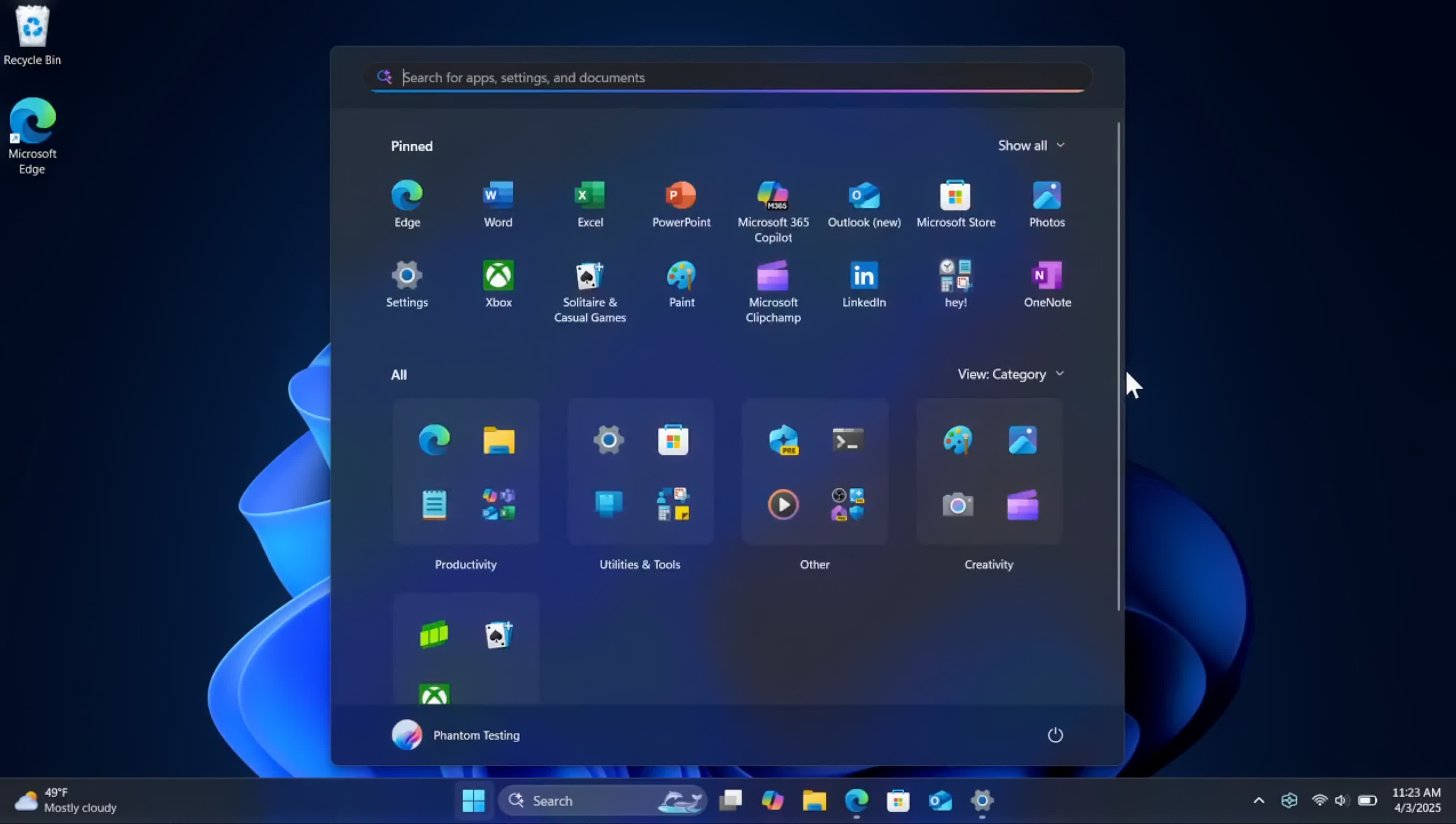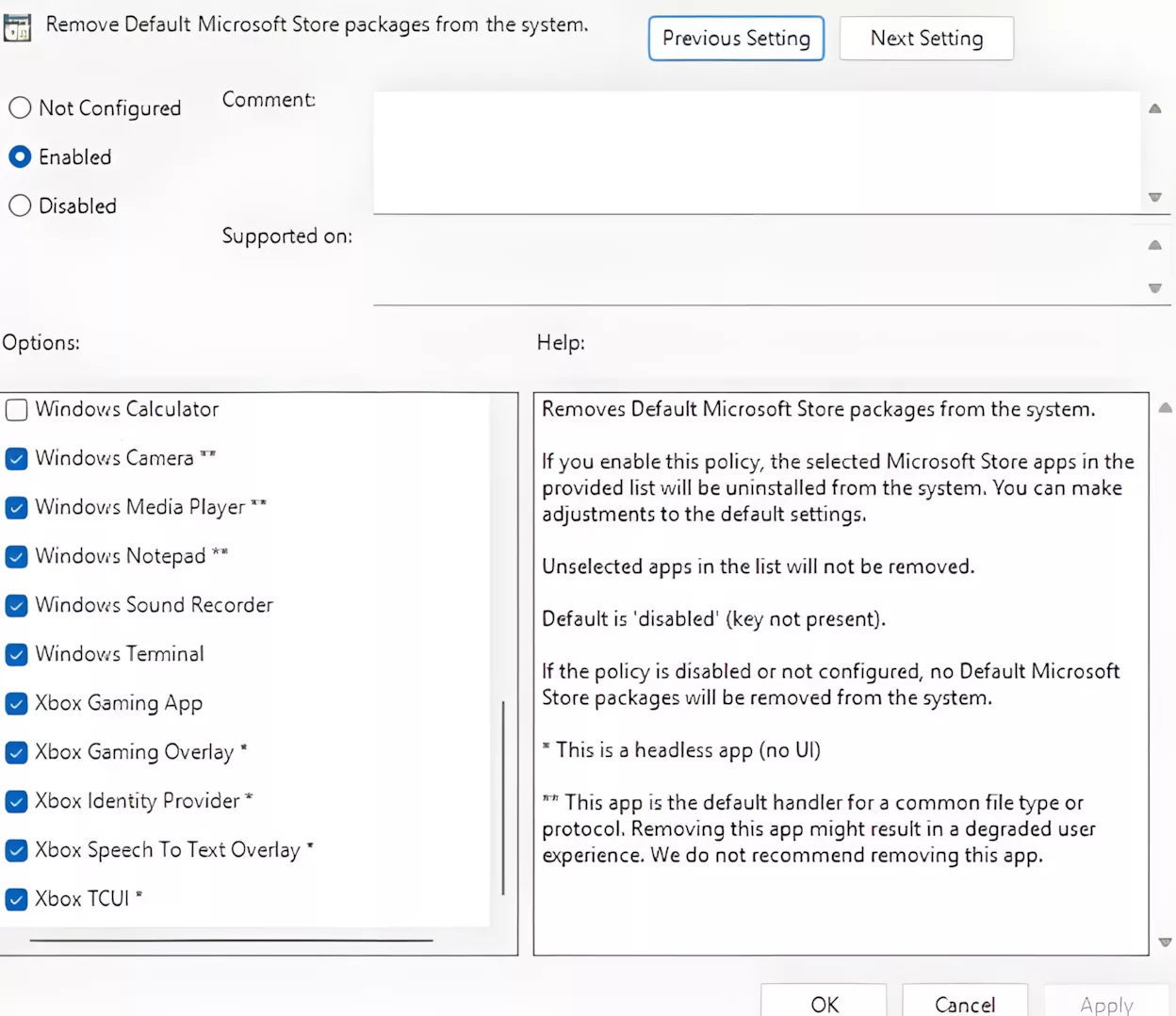Why it matters: Some Windows users often complain about preinstalled apps that are difficult to remove, resulting in cluttered interfaces, annoying notifications, and sometimes slower performance. While unofficial methods for streamlining Windows installations exist, these can be complex, so a new official option for uninstalling built-in apps will be a welcome addition.
Windows Insiders recently discovered a setting in a preview version of Windows 11 version 25H2 that allows users to remove preinstalled apps. This new feature should help users customize the startup experience more easily, particularly IT admins who manage multiple devices in enterprise environments where some Microsoft programs are unneeded.
Patch My PC reports that the setting, called Remove Default Microsoft Store Packages, is located under Computer Configuration > Administrative Templates > Windows Components > App Package Deployment.
Selecting it opens a menu where users can choose programs for removal, including the Camera, Sound Recorder, Windows Media Player, Xbox, Windows Terminal, Notepad, and more. It does not affect preinstalled third-party applications such as LinkedIn.
Removing these apps in current public versions of Windows typically requires complicated workarounds, such as using PowerShell. The feature introduced in version 25H2 is a native policy, which will likely become the preferred method moving forward.
Apps are uninstalled once users activate the policy and select the programs they want to remove. Administrators should complete the removal process before new users log in to ensure a clean interface with minimal distractions. However, non-functioning shortcuts to uninstalled apps may still appear in the Start menu.
The first preview build of Windows 11 version 25H2 appeared late last month, but Microsoft did not mention any new features at the time. Although earlier rumors suggested that Windows 12 could arrive as soon as 2025, the release of Windows 11 version 25H2 likely delays the next major operating system revision by at least another year.

It is still unclear when Microsoft will announce a transition to Windows 12, but it probably will not happen soon. Windows 11 only recently surpassed Windows 10 in user base after more than three years on the market. The upcoming end of Windows 10 support this October is likely the main reason for the shift. Microsoft may be hoping that releasing Windows 11 version 25H2 will boost interest in its current operating system.
However, uninstalling official apps might not require version 25H2. Microsoft's Jason Leznek confirmed that the features included in the update will also appear in version 24H2, although they will be disabled by default. Windows 11 25H2 is expected to receive a public release later this year.

